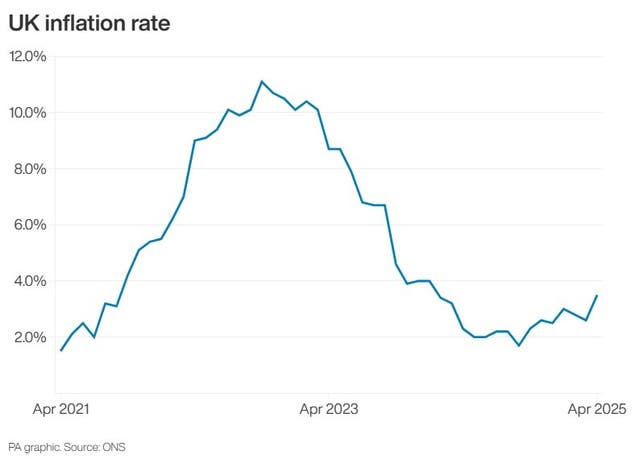Ofgem to confirm latest energy price cap for household bills
The typical bill is expected to fall by £129, experts at Cornwall Insight have predicted.

Ofgem is expected to confirm that household energy bills will fall by around 7% from July when it updates its latest price cap on Friday.
The typical bill is expected to fall by £129 to £1,720 per year when the regulator’s new price cap – which sets the limit on how much firms can charge customers per unit of energy – comes into force, experts at Cornwall Insight have predicted.
The price cap is currently set at around £1,849 for a typical household after three consecutive increases in bills.
It is set to fall after US President Donald Trump’s aggressive tariff plans led to a significant slump in gas and oil prices.
However, the predicted drop is slightly less than the previously forecast 9% fall following an easing of trade tensions in recent weeks.
Cornwall Insight said it expects the reduced price cap to be followed by a “modest drop” in October and another similar dip in January next year.
News of a fall in energy costs will come as a relief for households, who suffered through an “awful April” of bill rises, including Ofgem’s last 6.4% price cap increase.
Under-pressure households have also been hit with the biggest increase to water bills since at least February 1988, alongside steep increases across bills for council tax, mobile and broadband tariffs, as well as road tax.
Bill rises have led to Consumer Prices Index (CPI) inflation jumping to 3.5% in April, up from 2.6% in March and the highest since January 2024.
On Monday, Craig Lowrey, principal consultant at Cornwall Insight, said: “The fall in the price cap is a welcome development and will bring much-needed breathing space for households after a prolonged period of high energy costs.

“It’s a step in the right direction, but it should be taken in context.
“Prices are falling, but not by enough for the numerous households struggling under the weight of a cost-of-living crisis, and bills remain well above the levels seen at the start of the decade.
“As such, there remains a risk that energy will remain unaffordable for many.”
Ofgem changes the price cap for households every three months, largely based on the cost of energy on wholesale markets.
The energy price cap was introduced by the Government in January 2019 and sets a maximum price that energy suppliers can charge consumers in England, Scotland and Wales for each kilowatt hour (kWh) of energy they use.
It does not limit total bills, because householders still pay for the amount of energy they consume.





